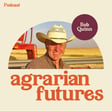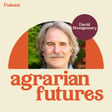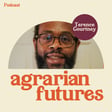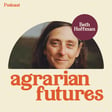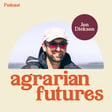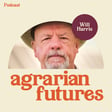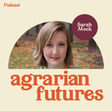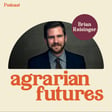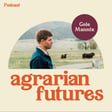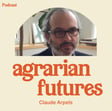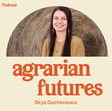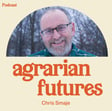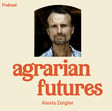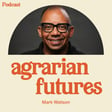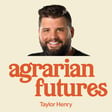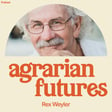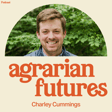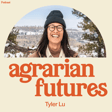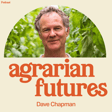
The New American Shepherd with Cole Bush
For Cole Bush, life as a shepherd is more than a job—it’s a calling. As the founder of her own grazing business in Southern California, she's using livestock to help restore land, reduce wildfire risks, and promote better agricultural practices. At the same time, she’s using her knowledge to train the next generation of pastoral graziers through the Grazing School of the West.
We’ll dive into her journey, sharing the insights she gained along the way about the co-evolution of humans, animals, and our environment. Cole’s work is changing the way people think about grazing, and today, she’s here to share how livestock can be a powerful tool for healing the land.
In this episode, we cover:
- An introduction to prescribed grazing - using sheep and goats to benefit local ecosystems.
- The history of pastoralism in California and how plants, animals, and people have co-evolved.
- Pastoral strategies to build fire resilience.
- The importance of learning from ancient indigenous practices
- Training the next generation of graziers through the Grazing School of the West.
- And much more...
Learn more and get in touch with Cole at Sherpherdess Land and Livestock and the Grazing School of the West.
Follow her on Instagram:
@bcbshepherdess
@shepherdess.land.and.livestock
@shepherdesshides
@grazingschoolofthewest
More about Cole:
Cole Bush, known for bringing the practice and ancient vocation of shepherding to Southern California, is an entrepreneur, advocate, and creative liberator in the fields of climate-beneficial agriculture, land stewardship, and prescribed grazing. With over a decade of experience, Cole has developed and managed prescribed grazing projects on thousands of acres of private and public lands throughout California for ecological enhancement and fire hazard reduction. Guided by her drive for meaningful work Cole is passionate in supporting others to find vocational pathways for non-traditional agrarians.
She is the founder of Shepherdess Land and Livestock Co. - a prescribed grazing company based in Ojai, California, Shepherdess Holistic Hides - a purveyor of mindfully sourced sheep hides, and Grazing School of The West - a non-profit 501(c)3 multidisciplinary vocational training program for the next-generation of graziers.
Agrarian Futures is produced by Alexandre Miller of You Should Have a Podcast, who also wrote our theme song.
